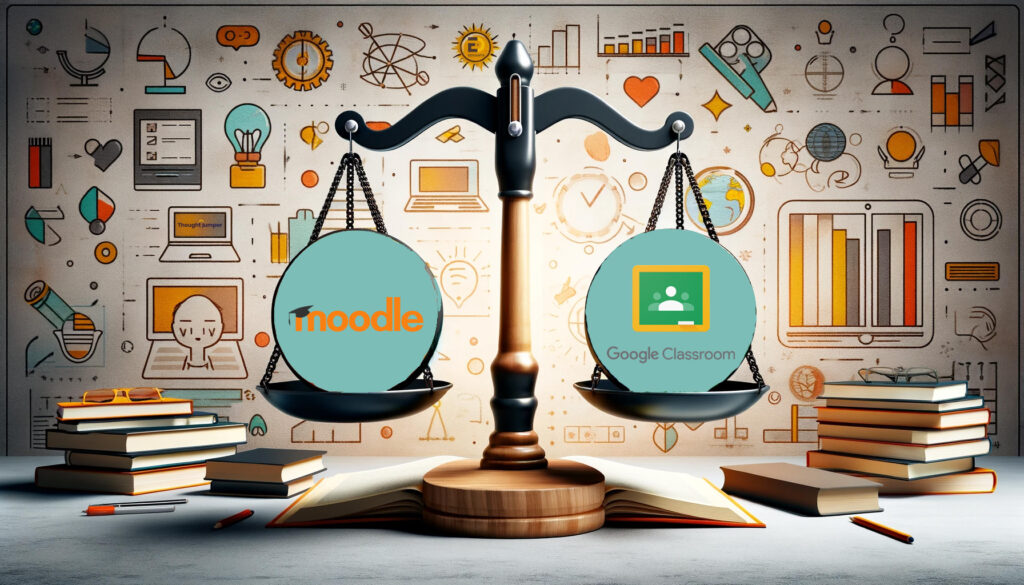Beyond Traditional Learning
Unleashing the Power of Social Learning in Learning Management Systems

Introduction: Shifting the Paradigm of Learning
In the fast-paced world we live in, traditional learning methods have become less effective in engaging learners and promoting knowledge retention. Passive consumption of information through lectures and textbooks no longer captivates learners or prepares them adequately for real-world challenges. It is time to embrace a new era of learning that goes beyond traditional methods and taps into the power of social learning.
Background: From Passive Consumption to Active Engagement
Social learning is based on the concept that people learn best when they actively participate in discussions, collaborate with others, and share their knowledge and experiences. It is a departure from the one-way transmission of information to a dynamic and interactive learning environment. Learning Management Systems (LMS) are evolving to accommodate this shift and offer innovative features that foster social learning.
The Rise of Social Learning: A Paradigm Shift
1.1 Embracing Collaboration and Interaction
Social learning thrives on collaboration and interaction among learners. LMS platforms now provide discussion forums, chat features, and virtual classrooms where learners can engage in real-time conversations, ask questions, and share insights. By encouraging collaboration, learners can tap into the collective knowledge of their peers, gaining diverse perspectives and expanding their understanding of the subject matter.
1.2 Building a Vibrant Learning Community
Social learning is not just about individual interactions; it is about building a vibrant learning community. LMS platforms facilitate the creation of online communities where learners can connect with like-minded individuals, share resources, and support each other’s learning journeys. These communities foster a sense of belonging, motivation, and accountability, enhancing the overall learning experience.
Innovation in Learning Management Systems: Redefining the Learning Experience
2.1 Transforming LMS Platforms
LMS platforms are undergoing transformative changes to cater to the needs of social learning. They are becoming more intuitive and user-friendly, with enhanced features that facilitate collaboration, content sharing, and personalized learning paths. Advanced analytics and reporting tools enable educators to track learners’ progress and identify areas where additional support may be required.
2.2 Harnessing the Potential of Technology
Emerging technologies such as artificial intelligence, virtual reality, and gamification are being integrated into LMS platforms to enhance engagement and interactivity. Adaptive learning algorithms personalize the learning experience based on individual needs and preferences. Gamification elements like leaderboards, badges, and rewards make learning enjoyable and motivate learners to actively participate.
Key Challenges: Navigating the Path to Social Learning Success
Interactivity Unleashed: Overcoming Limitations
1.1 From Passive to Engaging Discussions
Traditional LMS platforms may offer limited features for interactive discussions, hindering the social learning experience. To overcome this challenge, modern LMS platforms integrate robust discussion forums, live chat options, and video conferencing tools. Learners can actively engage in meaningful discussions, ask questions, and share insights, creating a vibrant learning community.
1.2 Collaborative Projects for Dynamic Learning
Collaborative projects are instrumental in social learning, as they promote teamwork, problem-solving skills, and critical thinking. LMS platforms should facilitate the creation of collaborative spaces where learners can work together on assignments, projects, and case studies. Features like document sharing, version control, and real-time collaboration tools empower learners to collaborate effectively, despite geographical barriers.
Fostering Personal Connections: Nurturing Engagement
2.1 Building a Sense of Community
Establishing a sense of community in an online learning environment is crucial for social learning success. LMS platforms should incorporate features that encourage learners to connect with their peers, such as discussion boards, social profiles, and interest groups. Virtual events, webinars, and networking opportunities further foster personal connections and a sense of belonging.
2.2 Navigating the Online Landscape of Connectivity
In an online learning environment, learners may feel disconnected due to the absence of face-to-face interactions. LMS platforms can mitigate this challenge by facilitating real-time interactions through video conferencing, virtual classrooms, and live Q&A sessions. Additionally, asynchronous learning options provide flexibility for learners in different time zones, ensuring inclusivity and engagement for all.
Breaking Time and Space Barriers: Learning Without Boundaries
3.1 Balancing Global Schedules
With learners spread across different time zones and having varying schedules, coordinating real-time interactions becomes challenging. LMS platforms should offer flexible scheduling options, allowing learners to access content and participate in discussions at their convenience. Recorded lectures, discussion archives, and asynchronous learning activities ensure that no learner is left behind.
3.2 Embracing Asynchronous Learning
Asynchronous learning allows learners to engage with the learning materials and interact with others at their own pace. LMS platforms should support asynchronous learning by providing access to pre-recorded lectures, discussion boards, and collaborative projects that can be accessed and completed at any time. Learners can take ownership of their learning journey and engage when it best suits them.
Trust in a Virtual World: Creating Secure Learning Environments
4.1 Strategies for Building Trust
Establishing trust among learners in an online environment is essential for effective social learning. LMS platforms should emphasize privacy and data protection, ensuring that learners’ personal information is secure. Clear guidelines on acceptable online behavior and respectful communication should be communicated to foster a safe and inclusive learning environment.
4.2 Guidelines for Open Communication
Open communication channels are vital for social learning, but they should also be moderated to prevent misuse or inappropriate content. LMS platforms should provide tools for reporting and resolving issues, as well as guidelines for respectful and constructive communication. Encouraging active participation and valuing diverse opinions foster an environment of trust and mutual respect.
Igniting Active Participation: Empowering Learners
5.1 Gamification for Enhanced Engagement
Gamification elements can transform the learning experience by making it more interactive and enjoyable. LMS platforms should incorporate gamification features such as leaderboards, badges, and rewards to motivate learners and stimulate healthy competition. By gamifying the learning process, learners are more likely to actively participate, complete tasks, and strive for continuous improvement.
5.2 Discussions that Drive Learning
Meaningful discussions are the cornerstone of social learning. LMS platforms should provide features that facilitate discussions, such as threaded forums, commenting systems, and real-time chat. Educators can guide and moderate discussions to ensure they stay focused, encourage critical thinking, and promote knowledge sharing among learners.
Finding Balance: Individual and Group Learning Dynamics
6.1 Customizing Learning Paths
Every learner has unique needs and preferences. LMS platforms should allow learners to customize their learning paths, providing options for individual exploration and specialization. Personalized recommendations, adaptive learning algorithms, and self-assessment tools empower learners to take control of their learning journey, while still benefiting from the collaborative aspects of social learning.
6.2 Fostering Collaborative Learning Spaces
Collaboration is a fundamental aspect of social learning. LMS platforms should create virtual spaces where learners can engage in group projects, peer reviews, and teamwork. Features like document sharing, co-editing, and project management tools enable seamless collaboration, promoting effective communication, and shared learning experiences.
Privacy and Security: Protecting Learner Data
7.1 Ensuring Confidentiality
Privacy and data security are paramount in online learning environments. LMS platforms should prioritize data encryption, secure login protocols, and compliance with data protection regulations. Learners should have control over their personal information and the ability to manage their privacy settings to ensure confidentiality.
7.2 Implementing Robust Data Protection Measures
LMS platforms should implement comprehensive data protection measures, such as regular data backups, restricted access to sensitive information, and ongoing system monitoring. Educators and administrators should be trained in data security best practices to ensure the safe handling of learner data. Transparent communication about data usage and protection policies builds trust and confidence among learners.
Facilitator Training and Support: Nurturing Learning Champions
Facilitators play a crucial role in social learning environments. They should be equipped with the necessary skills to facilitate discussions, foster engagement, and address challenges that arise during the learning process. LMS platforms should provide comprehensive training and ongoing support for facilitators, empowering them to guide learners effectively and create a positive learning atmosphere.
Data, Facts, and Trends: Unveiling the Impact of Social Learning
In this era of digital transformation, the impact of social learning in LMS platforms is evident. Research and case studies highlight the positive effects of social learning on learner engagement, knowledge retention, and skill development. The collection and analysis of data can provide valuable insights into learner behavior, preferences, and areas of improvement, enabling continuous enhancement of the learning experience.
Conclusion: Unlocking the Full Potential of Social Learning
Social learning is revolutionizing the way we approach education and training. By embracing collaboration, interactivity, and personal connections, LMS platforms are transforming traditional learning into a dynamic, engaging, and effective process. The challenges associated with social learning can be overcome through innovative features, strategic implementation, and a commitment to privacy and security. It’s time to unlock the full potential of social learning and empower learners in their pursuit of knowledge and growth.
To harness the power of social learning and optimize your learning management system, explore the solutions offered by Edvanta Technologies. With their expertise in LMS development and customization, Edvanta can help you create an engaging and interactive learning environment that promotes collaboration, personal connections, and effective knowledge sharing. Contact Us today to embark on your social learning journey and revolutionize the way you learn.
Our Latest Blog
Embrace Social Learning with Edvanta Technologies
Contact us today and let our experts guide you towards competency-driven success with Edvanta’s Totara-powered Learning Management System.




